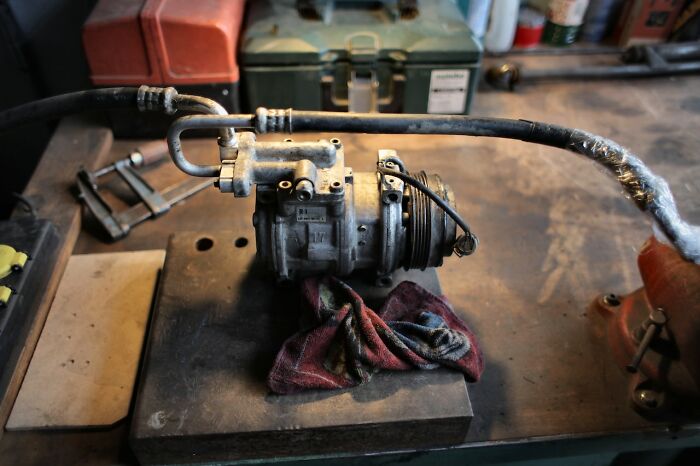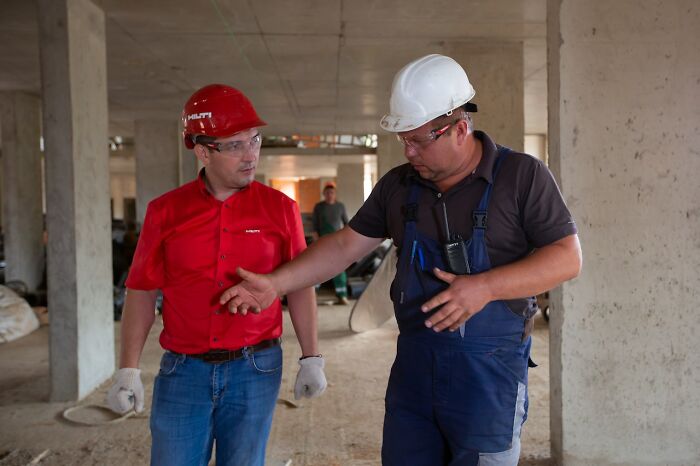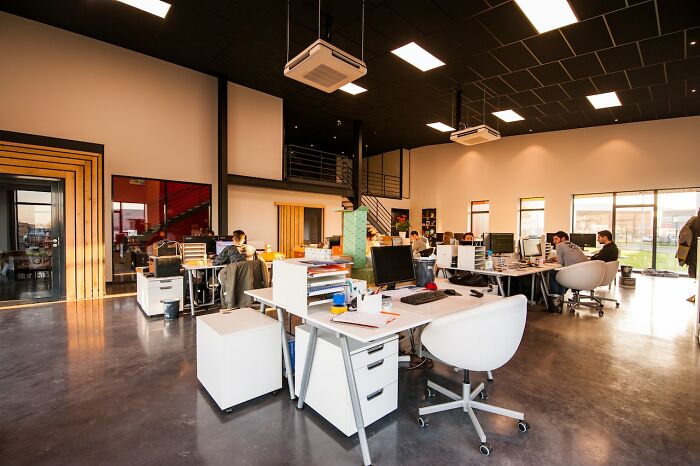39 Companies That Tried To Penny-Pinch And Ended Up Losing Money Instead
Posted by admin on
Losing a dollar to save a penny seems like a supremely dumb business strategy unless you are trying to short-sell your own company. Which is also supremely dumb, since it’s pretty illegal. But short-sightedness is unfortunately as common as bark on a tree, and some people in upper management are experts in little else but shooting themselves in the foot.
Fortunately for us and posterity, internet users have gathered some of their experiences with companies trying to penny-pinch and paying the price for it. So get comfortable and read through this collection of policy backfires that are sure to induce some pleasant schadenfreude. Be sure to upvote your favorites and comment your own stories.
#1
Underpaying the nurses so they quit and had to pay agency 3x the going rate
Image credits: junotinychonk
#2
We used to get a travel per diem for our meals. Most people would eat cheap like get a free breakfast at the hotel and get a $5 footlong and split it for lunch and dinner and bank the rest. I traveled a lot so it was like a nice perk. The company got wind of this and changed their policy to we had to buy and expense all our meals. The problem was they had to have the same policy for all employees so they couldn’t put a cap on meals due to the sales guys having to take out clients and stuff. We took full advantage of it and ate like kings. My meals expenses were twice what they were paying in per diem.
Image credits: velvet_satan
#3
Company ran a campaign for "outside the box" ideas in cost cutting, with stock awards for proven savings. Our facility maintenance manager claimed a $300k savings by eliminating unnecessary capital spare parts in the warehouse and received a $30k award.Six months later a critical compressor failed resulting in the plant reducing to half capacity at a $500k per day profit loss. It would only take two days to repair, however, the parts were no longer in the warehouse. They were among those eliminated and sold for scrap. It took 90 days to receive replacements.
Total loss to our company was just over $50 MILLION.

Image credits: eron6000ad
Even massive household names with billions at stake still find ways to endanger themselves with poor decision-making skills. A tiny little media company called Warner Bros. Discovery decided it needed to try and save $3 billion last year, a pretty tall order even for the most financially responsible of us. So they decided to find a few ways to cut costs. Most famously, they took an already completed film, Batgirl, and canned the whole thing, among other projects. They also removed over 200 episodes of Sesame Street from HBO Max and shut down CNN+.
The precise savings are unknown, but the uncertainty affected investors since, let's face it, a movie studio deciding to scrap a finished movie is not a move of confidence. This was all done, reportedly, to help Warner Bros. Discovery recoup some money in the form of tax-write-offs. Regardless of the reasoning, investors were wary and the company lost around$20 billion in market cap. This is a fancy way of saying people thought the company's potential value was a cool $20 billion smaller than it was before these decisions.
#4
Buying 30 buses with 100-200 less horsepower than the previous ones, turns out you need s**t tons of power to get up the steep mountain hills in Norway.
Image credits: HazMama
#5
Refused to raise my pay to the same level as my coworker's, not because of any difference in experience or workload but because he was five years older than me. I quit, at which point they realised that I had been handling a lot of my boss' tasks and that my coworker and I had basically been doing the work of three people, so they had to hire two people to replace me. And then my original coworker got fed up and quit too.
Image credits: Whole-Arachnid-Army
#6
Lay off a bunch of veteran people so they can bring in newer workers for cheaper. They find they couldn't bring in newer people for cheaper so they hire newer people at close to the same price as the veteran workers. Veteran workers are mad they have to train somebody making almost the same as they are with no experience and start leaving. Company has to pay fewer remaining veteran workers even more to get them to stay while paying inexperienced workers close to what the workers they just laid off were making.To my knowledge, prior to the lay offs, the veteran workers weren't even complaining about pay. Now the department is at a worse state and more expensive than what it was prior to their plan to save money.

Image credits: Frankie__Spankie
Now, often enough, the driver behind these decisions seems to be nothing but simple greed. Or at least it can look that way from the outside. Sometimes a company really does need to find ways to make money. Or sometimes an executive really does think they have a brilliant idea. Let's for a moment assume that the higher-ups really thought it was necessary for the company. Wild idea, right? So even in a best-case scenario, why do smart, capable professionals make terrible decisions?
#7
The FinTech company I worked for decided to offshore all of IT Support jobs to India, which resulted in about 35 of us training our replacements for 3 months until our jobs were terminated. Not even a month after my last day myself and many other former colleagues were receiving calls from management asking if we wanted our old jobs back, but legally it would be a 12-month contract since we received severance pay - almost everyone declined. I've received regular updates from one buddy who actually went back and the last 12 months has been a death spiral -- almost every large client bailed in favor of our competitors, those who remain are still pissed off and eager to leave, and 4 people are staring at ticketing queues that were previously managed by 35 of us.A billion dollar company was profitable and thriving but the decision to save, I don't know, a couple million bucks, wound up sabotaging the entire business. Great job.

Image credits: HxCMurph
#8
Someone I know worked for the "oldest american" hoist company. They decided to outsource production to china. The cost of transport, losses, customs, etc made the chinese hoists just as expensive as their american made ones and then the chinese company stole the plan to make and sell themselves for less.
Image credits: Diabetesh
#9
Outsourcing the call center to central America. We were one of the only companies in our line of work that ONLY operated in the US, and customers loved us for it. Their customer base cut down by 1/3 within 2 years of outsourcing, and now they are hanging on by a thread. Wouldn't be surprised if they went under within the next 5 years.
Image credits: Sad-Raise-754
Despite what they might want you to think, executives are still just ‘regular’ humans along with the rest of us. They attach emotions to ideas that possibly don’t deserve them and they see patterns in events that aren’t actually there. Self-interest also skews a lot of data. If we desperately want something to happen, our brains will start to find evidence that supports our plan and ignores information that might limit it.
#10
They hired newer employees at 25% more salary without adjusting old employees who had been there for years.When this was found out they were told “life isn’t fair”, “the markets changed”, and “you didn’t negotiate well when we hired you”. So what did the old employees do? They left. And all the domain knowledge they built up over the years was lost so the new employees couldn’t perform.
Be loyal to your loyal employees. It’s a lot harder to replace them than people think.
#11
Moved "corporate" phone support from UK to India for a very large fizzy drinks company, despite the contract saying guaranteed UK support.over 50k phones cancelled and moved to their rival

Image credits: WimbleWimble
#12
I used to be the head of security for a club that had the most tight-fisted owners I’ve ever heard of.I kept telling them that we were dangerously understaffed. The police told them the same. So did the fire brigade, they said there wasn’t enough of us to evacuate the venue if we had to, they were right too. The owners wouldn’t listen.
The club was taking around 45k per week but they wouldn’t pay for radios for us to least be able to communicate. We had so many incidents there that it was just insane. There just wasn’t enough of us to actually watch the whole club and even when we did see something we couldn’t call for back up. I found a set of second hand radios for under £200 but they refused to buy them I ended up buying whistles for the team to at least give us something to use to get each others attention.
They also wouldn’t pay to get CCTV installed which upset the local police.
One night a bartender came out to the door and told me there was a fight inside, there was no security inside just 2 of us on the door. When we went in there was around 60 people brawling on the dance floor. We did what we could but it was beyond our control. Eventually the police arrived but wouldn’t come inside they stood outside and essentially instructed us to kick everyone out and they would keep them out. We spent 45 minutes dragging people out of there.
Many people were injured and after the fight one of the guys who had been fighting came back and stabbed a guy he had fought with.
The police decided enough was enough and approached the council who as expected revoked the premises license. They lost the club altogether.

Image credits: operative87
The simplest solution is to involve another party that can, at the very least, give you an outside perspective. A new person is less likely to have your specific emotional biases. However, a lot of upper management roles are not particularly cooperative. Bosses feel like they need to maintain their authority and will reject ideas from subordinates pretty quickly. Or, even worse, the people they might consult might be other higher-ups who are also pretty interested in saving, at almost any cost.
#13
Business traveler must fly to the closest airport to the destination.Is Airport A one mile closer to the destination than Airport B? Yes. Are the airline tickets 2x as expensive? Also yes.

Image credits: go4tli
#14
Old job, we had a fancy large format printer. The guy in charge of supplies kept buying knock off ink cartridges. A genuine new cartridge was probably $80 I don’t know what the knock offs cost. Every time the cartridge ran out the operator would try to replace it but it wouldn’t work and the line had to shutdown and the operator would but in an IT ticket. As the IT guy i would need to though 4 or 5 or more cartridges before i got one that worked. The duds would just get thrown away. The supplies guy didn’t work for IT they worked for the operations department. Still we talked to him about it several times and he would just blow us off and keep getting the knock offs.
Image credits: mtgguy999
#15
I worked in a daycare that at first was pretty relaxed. If a child missed a milestone it wasn’t a big deal.We got a new director that decided to get really strict about milestones. Her thinking was we can advertise that all our kids hit milestones at XYZ. We also got rid of some things that were too “babyish”for the older kids. Like no more changing table in the 3s room. 2 year olds weren’t allowed to have pacifiers, 4 year olds weren’t allowed stuffed animals.
Now once again, she did this because she wanted to be a more competitive daycare and increase the rates. For example “hey our daycare is great, all of our 3 year olds are potty trained!” Yeah because if they aren’t they get kicked out. I can talk about potty training all day but god forbid we have neurodivergent kids in the 3s room who need pull ups.
Parents got pissed. It didn’t help that most of the staff was against these changes and were vocal to the parents about it. Not only that, but now their rates were going up.
At first they were vocal about. But it honestly sucks to find a new daycare when your kiddo is happy. Then the kids started becoming unhappy. A parent asked why her kid didn’t nap and told her it’s because I’m not allowed to give them a paci.
Let me tell you. Mama who worked 10 hours a day to pay an asslode of money to daycare for her kid not to nap or be happy? Yep I got an earful.
What happened next was a chain reaction. A couple kids were pulled out, followed by some straight up getting kicked out, and now we weren’t taking on as many clients because of our strict requirements. As well as our more expensive rates. Now kids didn’t have their friends anymore. More kids got pulled out.
And that was it. It became so unprofitable it was sold and rebranded.

Image credits: lighthousek
#16
The home health agency I work for was bought out by a hospital system in the next state over. They decided to cut costs by eliminating the position of the person who would obtain authorization from the insurance companies for services and move it all to their centralized auth department in the other state. Only problem was, they had no idea that things worked differently for our state's medicaid program than it did in their state. They ended up getting denied for well over a million dollars in the first year for services we provided because they didn't properly obtain authorization. But hey, they saved maybe 30k in salary so good on them, I suppose.
Image credits: boin-loins
#17
To cover nightshifts in the hospital a new manager imposed a rolling rota of days and nights... 75% of the staff handed in their resignation as this was not an optional thing...Classic play silly games, win silly prizes.

Image credits: Background_Ear7166
#18
When lockdown hit, they immediately decided to 'save money' by furloughing almost all of the staff in order to get some government money.But we were a software company. Everyone could have written software from home. And that's precisely what all our competitors did.
So first, we fell behind massively. Second, people on furlough grew antsy and quit for new jobs that allowed them to, you know, work. Third, the small handful of people left behind at the company were suddenly swamped with demands and got burned out and annoyed.
We could have made so many strides adding Covid-relevant features to our app, the way our competitors did. But nope. Short term panic led to long term loss.

Image credits: Tulikettuja
#19
My old boss was a major cheapskate and always skirted licensing and regulations whenever possible. He refused to pay $5k for a license for certain states we operated in and eventually several suppliers cut our contracts and we ended up losing hundreds of clients and untold hundreds of thousands in recurring revenue because it.
Image credits: Grand-wazoo
#20
Not giving the guy doing 2.5 full time jobs a slight raise, instead letting them walk and paying 3 new people (combined) at least twice what they were paying him to do all the same work at like 65 percent the quality level
Image credits: BigPZ
#21
Hiring an optimization consultant.Five years later, the partners had to sell the company.

Image credits: Dark-Swan-69
#22
A company I worked for (a fortune 500 company) was having a hard time getting employees for 8.00 an hour, our competitors started at 10.00 an hour at the time, this was 5 years ago. Someone at corporate had the bright idea to stop using preemployment drug screening, allowing the positions to be filled by people who we normally would disqualify. This company was a national auto parts chain, and we had a fleet of delivery trucks, there were so many accidents both inside and outside of the stores over the 18 months that they did this. Through lost productivity, theft, and several liability lawsuits the company lost millions of dollars even enough to affect its stock prices.#23
The roof of our building was leaking bad. Got quotes for doing just a third of the roof and for doing a whole new roof. They choose to do third of the roof. All it did was move the leak. A month later they did the whole roof. They would have paid a lot less had they done it right the first time.
Image credits: sonsonmcnugget
#24
Shut off the HVAC system to save on electricity costs during the summer. Had to pay over half a million in mold remediation costs. F*****g morons.
Image credits: dinosore
#25
currently got a job at a pharmaceutical company that has water tanks that are too small to handle our water requirements, so the company spends $10k per week having the tanks replaced and fixed. i spoke to the worker who handles the replacements and he said its the stupidest f*****g thing hes ever seen. they can just get the correct water system size for $100k-150k
Image credits: plantman01
#26
I work at an industrial plant in a rural area. We require water to operate- some to flush the toilets, but also some for certain cleaning operations that we do. We could have a water well drilled for about $30,000 and it would easily supply all of our water needs. Instead, we have water brought on site, sometimes twice a week at $240 per trip. A year ago I asked my boss why we didn’t just get a well. His boss didn’t want to spend the money. He also said that he stopped keeping track after water delivery would have paid for three water wells.There’s also equipment we have that is undersized and bottlenecks our process, but we got it really cheaply so we will make do.
We also pay the lowest wages in our industry. In a year, we have had 60% turnover because everywhere else pays more. Then when someone leaves for more money we have to use overtime to cover for them and spend money training someone new. If we paid people more to start with and retained our staff then we would probably spend the same overall on wages and have a better trained staff.
Lastly, our plant uses a certain chemical for our production. If we run the plant at a medium pace, most of the chemical can get recycled in the process and we lose very little. If we are told to run the plant faster, we gain more output of the end product but the chemical is consumed rather than being recycled. As an example, if our slower production produces 30 units to 1 unit of chemical, the faster production yields 50 units to 5 units of chemical. Of course the chemical is much more expensive than our end product, so each unit is much less profitable.

Image credits: Dadofpsycho
#27
I work in R&D and prototyping for a small home theater company.My boss doesnt like how it looks when we make big purchases under his supervision.
So he consistently denies my proposals to buy a $500 3d printer, preferring to spend about $200-$300 per month to have another shop 3d print for us, and then paying me my salary to sit around for 2-5 days per job, doing nothing, while waiting for the 3d print shop to process their dozens of other customers.
All so that he’s not the one on the hook for a $500 machine that his employees are already fully capable of using.
I estimate we’ve spent about $1000 on 3d printing so far, plus the cost to have our delivery guys pick them up, plus the wasted down time
Gotta love spending entire weeks sitting around on my phone waiting for a single tiny plastic part that i could make myself in an hour
I just dont get it

Image credits: avanross
#28
Refused to expand. My company "had a good thing going" working with small mom-and-pop clients for low prices. The issue is that it worked well because the employees were all extraordinarily talented but in the early stages of our careers so our pay didn't quite match our capabilities. Once we started to catch on that we were getting paid 60-70k but could easily make 100k+ by switching companies, we started pushing our boss to charge more and market to higher tier clients so we could all make more but he simply refused. We wanted to stay, wanted the company to grow with us, wanted to do what we were capable of, but the boss was comfortable and didn't want to spend the money or take the risk.Well, surprise, we all started leaving for companies offering us 50-100% pay jumps. He replaced us with low cost employees. Work quality suffered, and clients started leaving. The company sputtered along for a couple years then finally went under.

Image credits: ideit
#29
The yard guy used to cut up old pallets, dunnage, and miscellaneous wood, put it in a box and employees would take turns bringing it home to burn. One of the owners saw that and pitched a fit that a worker was "cutting firewood" on company time and made a rule no more taking wood home. Now we have a guy cut the wood, put it in a bin, and we haul the bin to wood recycling, Where we have to pay to get rid of it.#30
The company my mom worked for had new offices built and instead of hiring movers they had the staff move. They had 3 injuries occur including my mom tearing her ACL. The HR director, who my mom was friends with, said it cost them 16x the amount they were quoted for movers to cover medical, legal, etc. costs.
Image credits: el_monstruo
#31
Stopped giving lower level staff pay rises.All of the staff were very specifically trained on our product. Years of tenure and experience behind them to help customers with.
Most of the tenured staff left, and they now have a constantly revolving door of staff, which they pay a fortune to train, only to see them leave 6 months later.

Image credits: Dboldandthebeautiful
#32
Thinner "recycled" plastic bags. We just have to use two now.
Image credits: TrickBoom414
#33
The owner decided that network admin is not needed because he is basically watching funny cat pics all the day and everything is working smoothly by itself. Two months after he got fired we had a major data loss, so we tried to restore from latest backup… turns out the backup script was failing for last three weeks and nobody had a clue.#34
In 1983, $4.2 billion company where I worked as an engineer eliminated free coffee.There was a near riot, major passive aggressive behavior ensued. Morale plunged. Job hunting initiated. We started leaving office and going to a coffee shop while being away for hours.
Policy reversed in about a month.
#35
A company I’ve worked for decided to fabricate pipe connections off-site for a new plant build based on on-site measurements and ship each piece to the location. (Basically this was meant to lessen the financial strain of hiring on-site pipe fitters and specialist welders). Initially, this process did save some coin for infrastructure construction, but once the module skids showed up, nothing fit together as drawn. Some connections were as far off as 7 ft and we use a lot of stainless steel piping (it’s necessary but extremely expensive). So…you guessed it, pipe fitters and stainless welders were hired to make everything fit that was “prefab’d” to fit together off site. The project blew its budget by 5 million, missed its deadline by over a year, and the facility was canibalized after 6 months of being online.Layoffs were announced 3 months after shutdown…just hire the damn pipe fitters and welders next time.
#36
I had a colleague who had gotten fired from his previous job because they got rid of their software development department and outsourced everything to save money.After a few months, he got a message from his former colleagues; they had founded a new software company together and had acquired their former employer as a customer, since they were the only ones familiar with their systems. Of course my colleague instantly quit at our company and joined them. Now he's working for his former employer again doing the same stuff he used to, but now as a contractor, for a lot more than he used to earn as an employee.
#37
You had to book the cheapest available flights, no matter what. We were paid hourly for travel, from arriving at an airport to leaving on the other side. The cheapest flight always had ridiculous transfers, I booked every single hour.#38
Micromanaging.I'm good at my job. My role is one that was specifically made for high performers. But on Friday I got a message from my boss's boss that I spent too much time away from my desk. I go into the office every day but I have the option to work from home. I work hard but I have the option to slack off. Now that I know if I go to the office they're just watching over my shoulder then guess what. I'm not going. And I'm doing exactly the bare minimum necessary. And I know many others who have adopted the same attitude. So instead of letting us high performers perform well you now have the high performers doing the absolute bare minimum. Good luck.
#39
I worked a side job delivering for a furniture store. The delivery truck was old an falling apart and poorly maintained. It broke down all the time and was probably more expensive to keep fixing than to buy or lease a new truck.Also, the owner was really stingy about tools. He didn't want any tools left in the truck in case they got stolen, even though the truck could be locked. So half the time we would forget tools and have to borrow a customers screwdriver or drill which made us look super unprofessional. Also the screwdrivers and drill bits he did have were stripped and the batteries for the drills hardly held a charge. You might wonder why we didn't just bring the tools every time we went out? Because half the deliveries didn't require them, so we never developed the habit.
I ended up buying two screwdrivers and keeping them in the cab of the truck. It helped multiple times to have those. But it was like come on, who cares if $100 of tools get stolen? The owner probably lost more than that much business just having us look so unprofessional.

Image credits: Tech_Enthusiast49376
